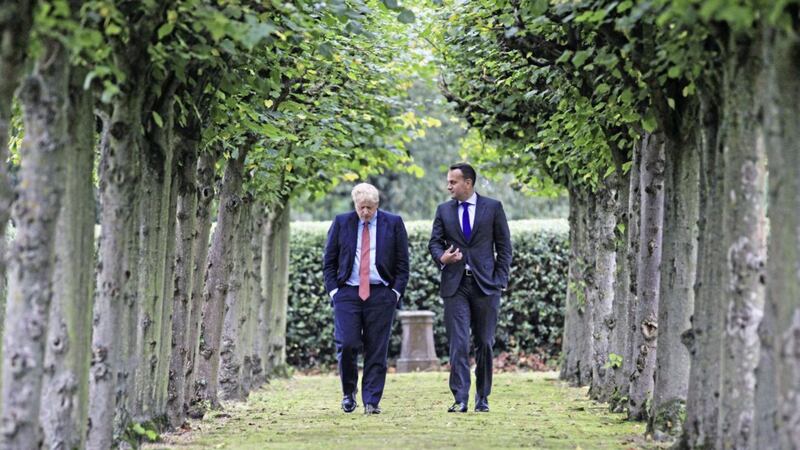THE Irish have a remarkable inability to understand the English. We have had a poor record in this respect throughout history, including our rather odd 17th century decision to support King Charles I (who believed he was appointed by God) rather than the republican Cromwell. (And we all know what happened next.)
More recently, the Irish (both nationalist and unionist) have significantly failed to appreciate the social and economic causes of Brexit.
Their flawed analysis helped Boris Johnson to win an 80-seat majority, which gives him a free hand on Brexit negotiations and the opportunity to shape society as he wishes, in Britain and the north.
So how did the Irish misinterpret Brexit? Both nationalists and unionists mistakenly saw it as an upper class, Tory movement, driven by English nationalists and little Englanders.
This column was a lone voice in suggesting that while nationalism and imperialism contributed to Brexit, its major influence was working class poverty.
Large swathes of post-industrial Britain suffer from deprivation, a lack of social housing, a declining health service and the collapse of public services at local and national government level.
In the Brexit referendum the poor simply rebelled against their plight (except over here) and in last week's election, they brought that rebellion to a new level.
These are the British equivalent of voters in the US rust belts who elected Trump. (And in both countries, they voted for the guy who will make their poverty worse.)
No Irish political party recognised what was happening. The DUP pledged loyalty to Britain's upper classes, which they saw as driving Brexit. (Unionism has never itself allied with the British working class, even during the miners' strike).
So the DUP blocked Theresa May's attempts at Brexit, preferring instead to back Boris. We know how that worked out.
Nationalists were equally irrational. For the past three years, they have abused the entire British population as little Englanders for daring to leave the EU (and many in the Dublin media are still in denial over the election result.)
Instead of insults, the Irish government might reasonably have been expected to respect the wishes of the British people and enter talks with Theresa May to avoid land or sea borders between or within these islands.
But foreign minister Simon Coveney refused to talk to the British. (That's the same Simon who is now urging the parties to talk at Stormont.)
The Dublin government's excuse was that Ireland could not stand apart from the EU. But two months ago, Ireland did just that. Leo Varadkar flew to Britain and agreed a border in the Irish Sea with Boris Johnson.
In making a deal which Johnson could sell to his own party and to the EU, Varadkar gifted him the election slogan, "Get Brexit done".
Without that slogan, Johnson would not have an 80-seat majority. So now that the Irish got it wrong, what happens next?
Despite his claimed liberalism, Johnson will likely privatise or scale down our remaining public services.
This will hugely impact on the north, rendering the Stormont talks largely irrelevant in terms of social and economic progress.
If the Irish Sea border remains, northern exports to Britain will be hard hit. Imports from Britain will be more expensive, including goods ordered on-line, many of which will become unavailable to northern customers.
For a man who pledged never to abandon the north, Leo Varadkar has done just that.
More importantly, an Irish Sea border raises the question of how loyalists will react. Nationalists argue that loyalists could possibly bomb customs posts in Larne. Of course they won't. They will do what they have always done. They will target Catholics.
Boris Johnson is not quite in Cromwell's league (well, not yet, anyway) but he can now treat Ireland, north and south, as he wishes.
Cromwell gave the Irish a choice of "to hell or Connacht". By the time Johnson is finished with us, it may well be a case of 'to hell or Ulster'. Right now, hell does not look so bad.









